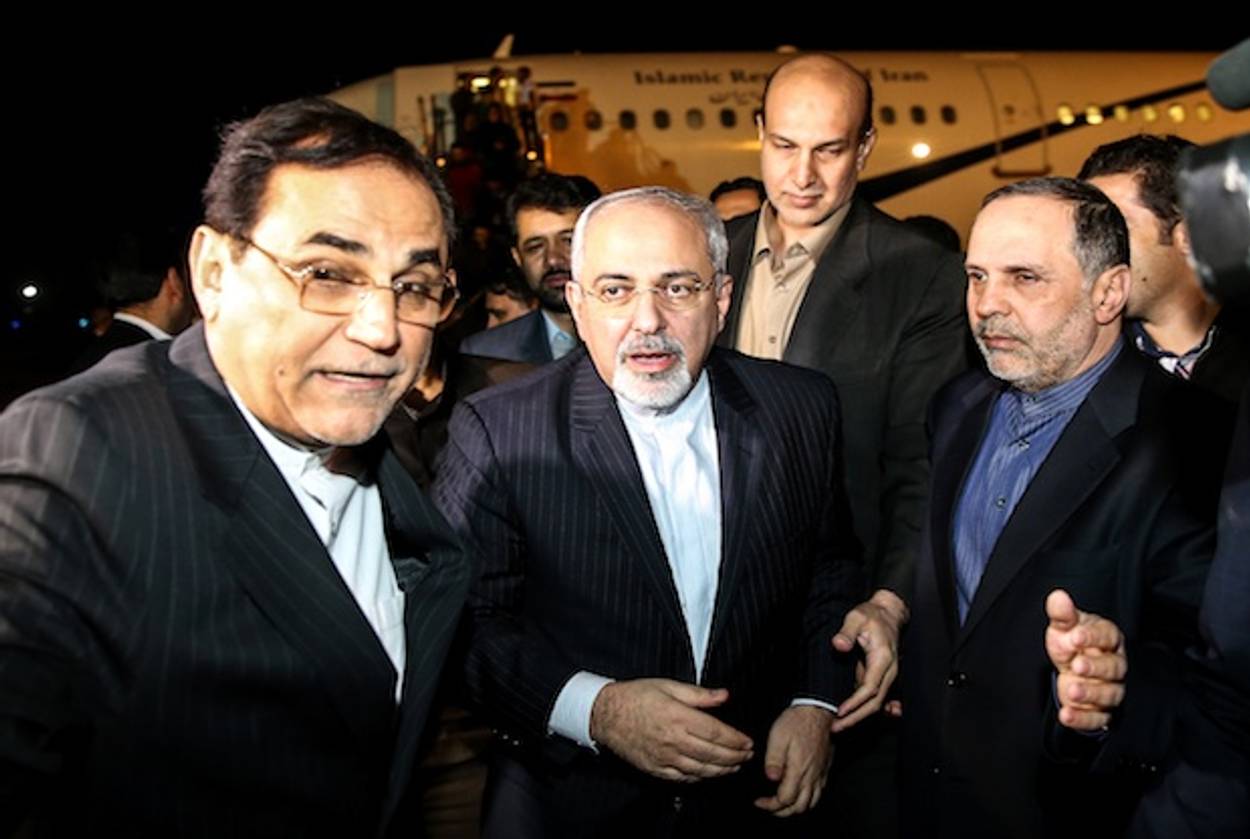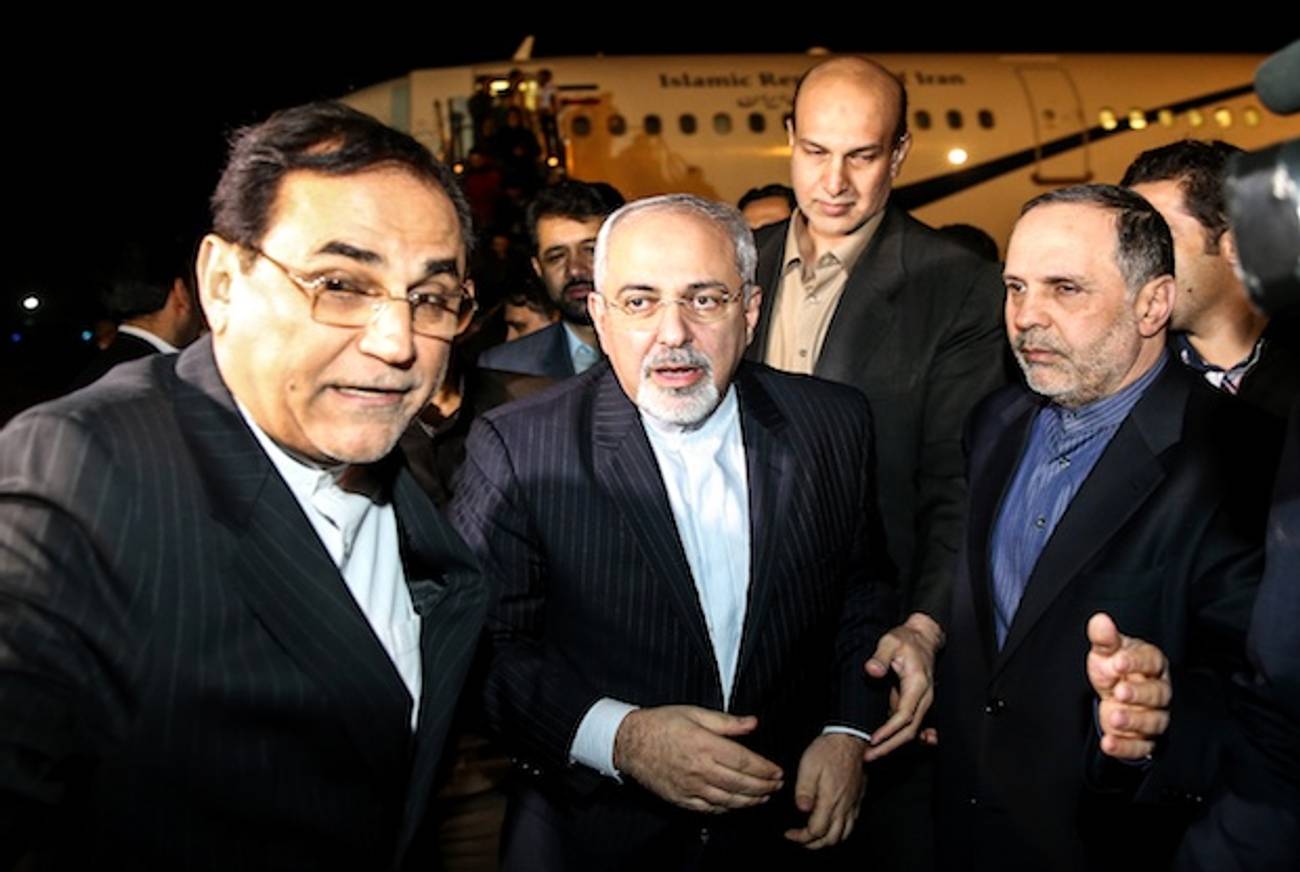Israeli Opposition to Iran Deal Not Based on Ego
It’s based on existence




Since the forging of the (temporary) nuclear deal on Sunday between Iran and the P5+1 Group, there’s been a strange burst of glee emanating from certain commentators (and a former National Security Adviser) about Israel finally receiving its comeuppance.
Zbigniew Brzezinski, who, let’s face it, didn’t exactly help America master its dealings with Iran during his time under President Carter, hailed the deal and offered that “Congress is finally becoming embarrassed by Netanyahu’s efforts to dictate US policy.” Roger Cohen chimed in this morning, saying that the deal had redrawn the strategic map of the Middle East, which had most inflamed Israel.
This explains Israel’s over-the-top “nyet,” its insistence that a deal heading off escalation makes the region more dangerous. Israel is the status-quo Middle Eastern power par excellence because the status quo cements its nuclear-armed domination. Any change is suspect, including popular Arab uprisings against despotism.
Well, let’s start by acknowledging all the good that popular Arab uprisings against despotism have brought about. Got anything? Roger that. One can and should back these ideas on ideological grounds, but if you are looking at a situation strategically–the charge of any country’s leadership especially when it’s happening next door and the ensuing animus is being directed at you–the change is suspect because it makes life less stable. That extends to the nuclear deal as well.
The more important point here is that the Israelis (and, yes, there are others too) also want to head off escalation. But they want a deal that ensures their safety, not a minimal rollback where a decidedly untrustworthy foe temporarily pauses its dangerous activity. Many who opposed the deal with Iran did so because they wanted a better deal and hoped the momentum of the sanctions would yield larger concessions. On Cohen went, dismaying at Israel’s reluctance to elevate Iran into a member in good standing of the world community.
Not Israel under Benjamin Netanyahu, who wants to keep Iran down. “Push us down, that is all I hear when I listen to Netanyahu,” one Stanford and Harvard-educated Iranian businessman told me. He has a strong belief that drawing Iran closer to the world is essential, a strong dislike of the Iranian regime, and a strong sense of outrage at Israel’s contempt for Iran’s national aspirations.
Stanford and Harvard, eh? Remind me what Iran’s national aspirations are. Building a nuclear program that isn’t solely for peaceful purposes. Sustaining one of those despots in Syria. Being a leading sponsor of global terrorism. Funding an army to repeatedly attack Israel from the north and kidnap and kill its soldiers and civilians. And on and on and on. Yes, I think it’s fair to say that Israel’s cynicism about Iran’s national aspirations is not without historical merit. How does Cohen frame the doubt about all these activities?
Iran will not swiftly shake off the suspicions its actions and (sometimes vile) words have aroused.
Suspicions aroused? Iran didn’t go to brunch with the world community and fail to pay its fair share of the tab. Amid chants of “Death to Israel” and “Death to America,” the Supreme Leader of Iran told 50,000 of his militiamen that Israel is a “rabid dog” like four days ago.
Of course, the door swings both ways. This may not be the deal that Israel, Saudi Arabia, and the Gulf States wanted, but it does slow Iran’s tumble toward a militarized nuclear program and puts Iran’s activity under scrutiny. It should be given a chance to play out without the entire confederacy of world powers that worked to make this happen being accused of Chamberlain-style appeasement.
Adam Chandler was previously a staff writer at Tablet. His work has appeared in the New York Times, the Wall Street Journal, the Atlantic, Slate, Esquire, New York, and elsewhere. He tweets @allmychandler.